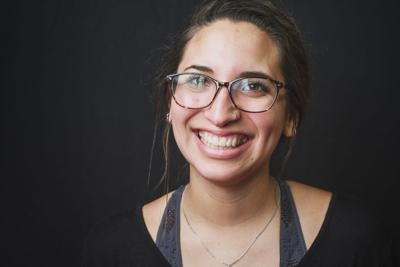When Isabel Johnston turned 16, she aspired to get a driver’s license, find a job and apply for colleges alongside her peers.
Her undocumented status rendered her dreams nigh impossible.
Johnston, a graduate student at UC’s College of Law, was born in Lima, Peru. At age 6, she immigrated to the U.S. with her family to pursue economic opportunity and personal freedom.
Her father arrived first and quickly found work. Eight months later, Johnston and her immediate family entered the country to reunite with him.
“He was working nonstop,” Johnston said of her father. “He slept like two hours a day, because he was working three jobs at different warehouses.”
After their tourist visas expired, Johnston’s family remained in the country illegally, unaware of alternatives to stay.
“There wasn’t a lot of education … on our end,” she said. “We didn’t really know how it all worked.”
Her parents have paid taxes throughout the duration of their stay, and held tax identification numbers well before their work eligibility was authorized, Johnston said.
“The government knew we were here the entire time,” she said. “We don’t see any of that money coming back … paying to social security and all that stuff, we are never going to see that money.”
Johnston discovered her undocumented status at age 15, effectively placing her dreams on hold. When the Obama administration implemented the Deferred Action for Childhood Arrivals (DACA) policy in 2012, Johnston saw a glimmer of hope.
“As soon as it happened … we put in our application,” she said. “We were then able to work and drive, and I opened a bank account, and I got a social security number.”
Since the policy’s establishment, Johnston’s opportunities have flourished. In May 2017, she received her bachelor’s degree from Transylvania University, and began pursuing higher education at UC’s College of Law this fall.
“I went to college and … took full advantage of having that protection and the opportunity to work,” she said.
Johnston was in class when Attorney General Jeff Sessions announced the abolishment of the DACA program. Her father messaged her family to break the news.
“He was just like, ‘Don’t freak out,’ like, ‘It’s okay, we’ll figure this out,’” she said. “The rest of the day was spent crying in the bathroom and looking through my Twitter feed to see what everything meant.”
Johnston received a flood of support from close friends and family. For now, she’s trying to avoid grappling with the possibility of deportation.
“I’m just trying to tell myself that there’s no way that Congress is going to let all these people lose their jobs,” she said. “If we had to leave, we might not go back to Peru, and try to go somewhere else where we would have good opportunities.”
Still, she fears for DACA-protected immigrants who have been unable to take advantage of the policy’s opportunities, citing high schoolers, incoming college students and financially struggling families.
“I fear for those people and how they are going through this, because that’s even more terrifying,” said Johnston. “There are so many [people] who are part of their communities, and it would be absolutely stupid to … not have those people be part of their communities anymore.”
This story is the second part of our series documenting the lives of UC “Dreamers” following President Donald Trump’s DACA announcement. Click here for the first story.

